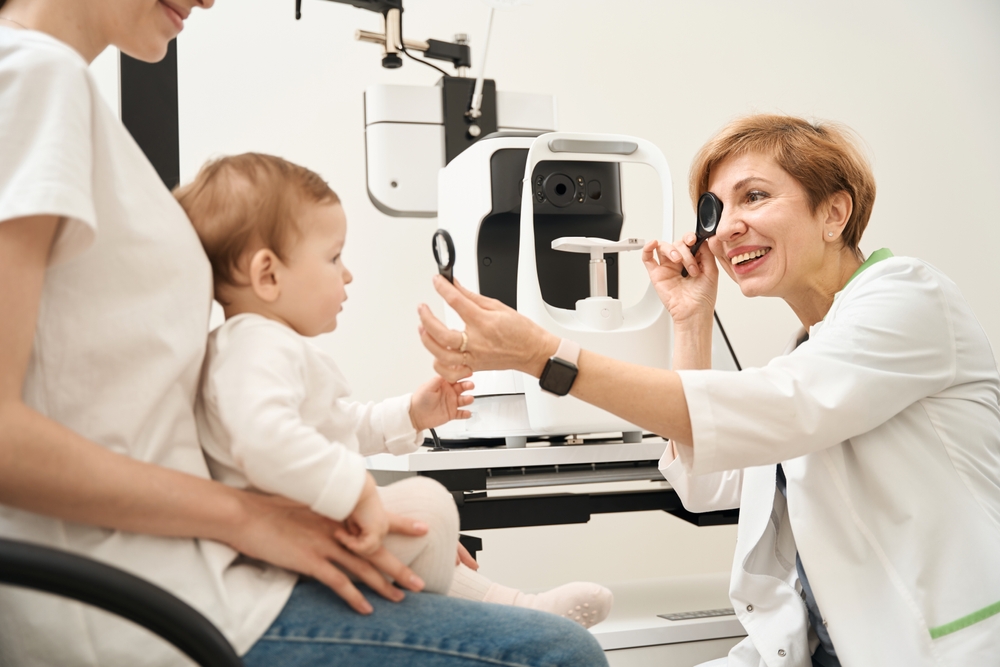
Children’s eyes are constantly developing, and their vision needs change significantly as they grow from toddlers to teenagers. Regular eye exams are essential to ensure healthy visual development, detect problems early, and provide timely treatment. Understanding these changes can help parents support their child’s vision every step of the way.
Early Childhood (Ages 1-5)
In the toddler and preschool years, a child’s visual system is still learning how to work together with the brain. During this stage, eye exams check for:
Amblyopia (lazy eye)
Strabismus (eye misalignment)
Depth perception development
Healthy focusing skills
Since children at this age may not be able to describe vision problems, subtle signs such as eye rubbing, squinting, or tilting the head can be important clues. Detecting and treating vision issues early can prevent long term effects.
School Age (Ages 6-12)
As children enter school, their visual demands increase dramatically. Reading, writing, and digital learning require sustained focus, and even minor vision problems can affect academic performance. Common concerns at this age include:
Nearsightedness (Myopia) - Blurred distance vision
Eye strain from increased screen time
Difficulty switching focus between near and far objects
Myopia often begins to develop in this stage, and without intervention, it can worsen each year.
Myopia and Myopia Management
Myopia is on the rise in children worldwide, often linked to increased close-up activities and reduced outdoor time. Beyond causing blurry distance vision, progressive myopia can raise the risk of serious eye diseases later in life, such as retinal detachment and glaucoma.
At Gregg Family Eye Care, we offer myopia management to slow the progression of myopia in children. Options include:
Specialized contact lenses (orthokeratology or soft multifocal designs)
Prescription eye drops (low-dose atropine)
Lifestyle recommendations such as more outdoor play and limiting screen time
Early detection and consistent monitoring are key to keeping myopia under control.
Teenage Years (Ages 13-18)
Teens face new vision challenges as their academic workload increases and recreational activities become more demanding. In addition to managing refractive errors like myopia, they may need:
Sports vision assessments for better performance
Contact lens fittings for comfort and convenience
Eye safety guidance for contact sports and hobbies
This is also a time when myopia may stabilize, but regular exams remain important to ensure healthy eyes into adulthood.
Schedule Your Child’s Comprehensive Eye Exam Today
Children’s vision needs evolve as they grow, and regular comprehensive eye exams are essential for keeping their eyes healthy from toddlerhood to the teenage years. Early detection and myopia management can make a lifelong difference in a child’s vision health and quality of life.
Schedule your child’s next eye exam with Gregg Family Eye Care and help protect their vision for the future. Visit our office in Secane, Pennsylvania, or call (610) 831-4300 to book an appointment today.






